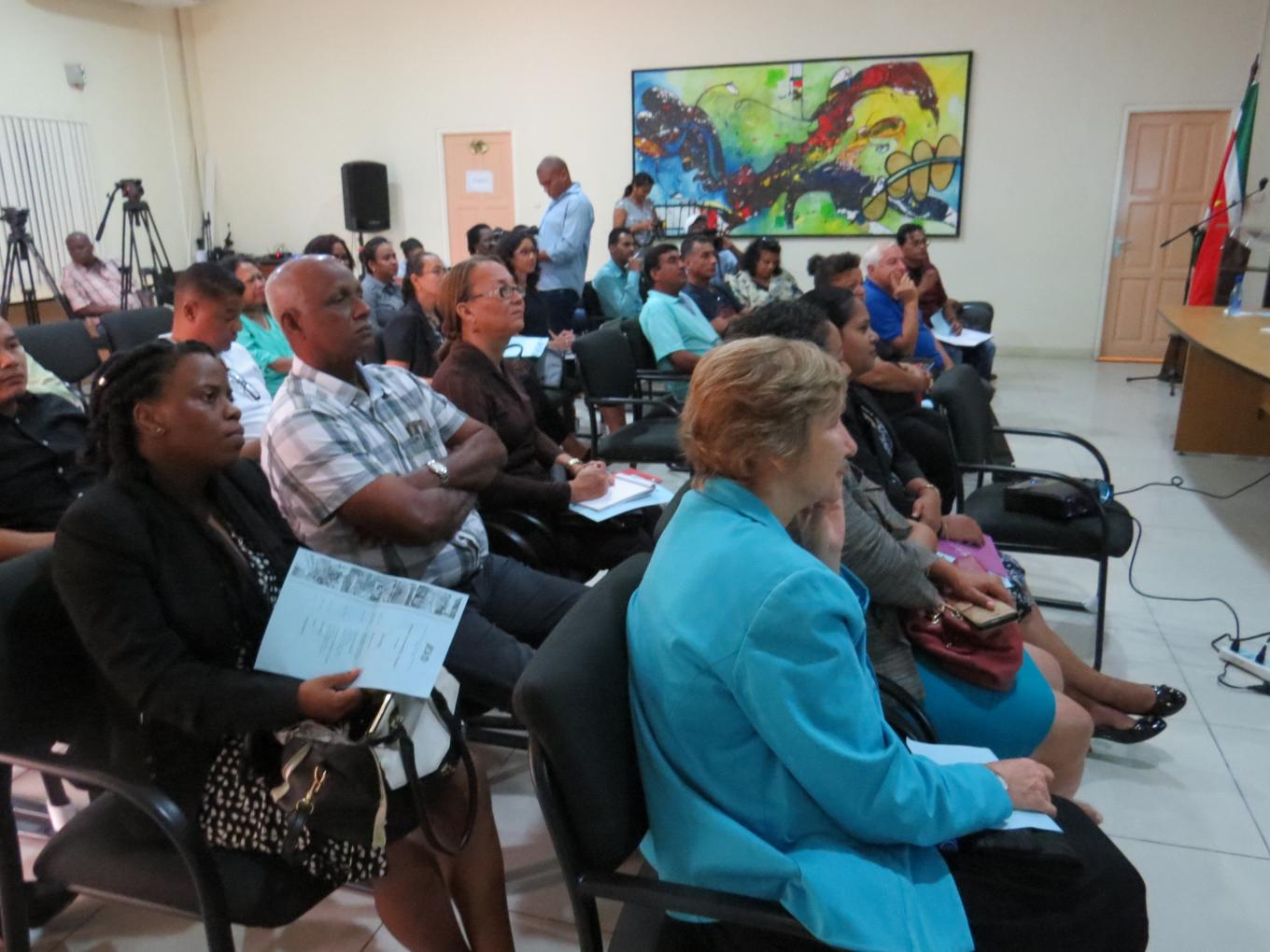Rural women, youth and indigenous communities benefited from the cooperation.
Paramaribo, Suriname. 24 May, 2018 (IICA). Stakeholders attending the 2018 Accountability Seminar gave a resounding positive approval and recognition to the results of technical cooperation agenda completed for the work programme year 2017.
It was specifically highlighted the important advances that rural women producers have made through the support of the Institute, the efforts at youth engagement, sensitization and awareness on agriculture, the provision of access to potable water to indigenous communities in the hinterland of Suriname, and the success in inserting agri-entrepreneurs particularly from indigenous communities into mainstream marketing and distribution channels among others.

The IICA Representative informed the wide cross section of stakeholders of the significance of the current programme year, which saw the assumption of duties of the new Director General for IICA, Dr. Manuel Otero. He explained the main principles espoused by the new DG for the formulation of the Medium Term Plan (MTP) 2018-2022, and the process involved towards its approval and subsequent operationalization.
The new Minister of Agriculture, Animal Husbandry and Fisheries (LVV), his Excellency, Lekhram Soerdjan, gave the feature remarks at the accountability seminar, this being his first. He recognized the important role that IICA is playing in developing the agriculture and rural sectors in Suriname. “In looking at IICA’s strategic objectives and that of the LVV, there seems to be total compatibility and in future I would like to strive towards even greater interaction and intensification of the collaboration between the Ministry of Agriculture and IICA to achieve full development of the agricultural sector in Suriname.
According to Soerdjan, there are sufficient external funding sources out there which can benefit agriculture in Suriname and he will seek to bring on board other national agencies to join LVV and IICA, and assist in boosting the capture of external resources for the benefit of the agricultural sector.
This year’s accountability seminar constituted the final full year of actions under the MTP 2014-2018. It was characterized by a very important role played by the flagship projects, particularly the Inclusion Flagship, and to lesser extent the Family Agriculture and Resilience Flagship Projects in shaping a robust technical cooperation agenda for Suriname.
More information:
Curt Delice, IICA Representative in Suriname











